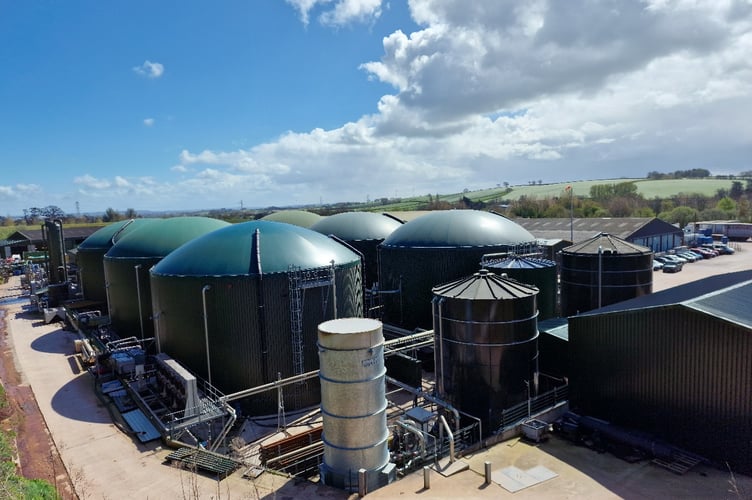A DECADE is being celebrated of heating homes and powering businesses in two West Somerset villages with locally-produced renewable biomethane.
The pioneering green energy achievement in Nether Stowey and Over Stowey was being marked with a special community event hosted by Wales and West Utilities (WWU), the gas emergency and pipeline service.
WWU brought together residents, local councillors, schoolchildren, and green energy leaders to reflect on 10 years of sustainable progress.
The company has partnered with local biomethane producer Cannington Enterprises to supply renewable gas to the villages, which have a population of about 1,400 benefitting from the partnership.
Together, a model has been created for how rural communities can embrace clean energy and reduce carbon emissions without changing the way people live.
The local farm takes organic waste from sources such as supermarkets, farms, domestic food waste, restaurants, and schools and transforms it into a green gas.
The waste goes through anaerobic digestion, a process where micro-organisms break down waste in the absence of oxygen to create biogas.
When biomethane is made, it produces a by-product called digestate, which local company RocketGro uses as a renewable fertiliser to improve soil health and support crop growth, reducing greenhouse gas emissions associated with waste decomposition.
The biogas is upgraded on site to biomethane, similar to natural gas, so customers do not need to change their appliances and can continue to heat their homes and cook as usual.
A technology called reverse compression increases pressure within the system to match the existing gas grid.
Once complete, the gas is ready to be used in the network or as vehicle fuel.
The Cannington Enterprises biomethane plant generates 1200 scmh of gas, enough to meet the villages’ entire gas demand.
On a mild day, the gas generated by Cannington Enterprises travels further across the network, also supplying Cannington village.
WWU head of net zero and sustainability Matt Hindle said: “Across our network, Wales and West Utilities currently transport enough biomethane to meet the annual demand of around 160,000 homes.
“Thanks to the commitment of organisations like Cannington Enterprises and RocketGro, we are turning waste into renewable energy for communities across the region.
“Research shows the UK could generate over 50 TWh of biomethane by 2030, rising to 120 TWh by 2050, making this a vital part of our journey to net zero.”
Cannington Enterprises operations and commercial director Alan Armstead said: “In the last decade, the number of anaerobic digestion plants and biomethane production has increased from three plants nationally to around 100.
“This trend is mirrored across Europe as the drive for low-carbon renewable energy gathers pace.
“Cannington Enterprises are delighted to play our part in reaching net zero and look forward to implementing new carbon capture technology in 2026, with the aim to reduce CO2 emissions by c15,000 tonnes annually.”
RocketGro managing director and co-founder Toby Thomas said: “This brilliant partnership helps us produce a wide range of organic approved environmentally-friendly professional grade composts, soil improver, and mulch which we distribute to hundreds of garden centres throughout the UK.”





Comments
This article has no comments yet. Be the first to leave a comment.